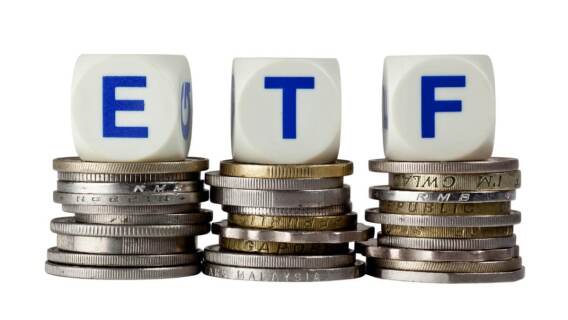What is an ETF? Well, an ETF is an exchange-traded fund, an investment fund that trades on a public stock exchange just like a stock. But unlike individual stocks, ETFs hold dozens and even hundreds of stocks, commodities or bonds, so you get the safety of diversification. In that way, they’re like mutual funds.
Many ETFs are “unmanaged,” however—you might say they run on autopilot—and entail lower annual fees than comparable index-based mutual funds, and far lower fees than actively managed mutual funds. However, given the expanding universe of specialty, actively managed, and leveraged funds, this is not universal.
[text_ad]
As you can see from the chart below, courtesy of Ycharts, the number of available U.S. ETFs has nearly doubled in the last five years alone. In fact, as of earlier this year, the number of ETFs now exceeds the number of individual stocks traded on U.S. exchanges. Globally, the number is even higher.
And unlike mutual funds, which are priced once a day after the market closes, ETFs are traded throughout the day just like regular stocks, so you can buy or sell them whenever you want, and when you buy, you get exactly the price quoted. That price can differ slightly from the net asset value (NAV, which is the price a mutual fund transaction executes at), but most differences between NAV and trade price are nominal
.
What Role Should ETFs Serve in Your Portfolio?
At Cabot Wealth Network, we are stock pickers at heart. That said, there are some instances when investing in ETFs makes sense—whether it be gaining maximum exposure to a red-hot sector, gaining access to an entire country’s stock market, or simply taking advantage of a bull market.
ETFs can also be used effectively to construct a core portfolio holding that offers diversified exposure across different asset classes.
One of the most important factors about ETFs is that they give you access to many different types of investments. ETFs can be composed of stocks, bonds, commodities, or other assets. This leads to the investor having to pay fewer commissions to brokers since they do not have to purchase each security individually. The variety of these assets also helps to stabilize and diversify an investor’s portfolio.
Are There Unique Risks to ETFs?
If you bought and held the SPDR S&P 500 ETF (SPY) at the beginning of 2001, before the tech bubble burst, and held until the value of your initial investment recovered, you would have found yourself on the doorstep of the housing crisis and Great Recession. A few short years later, at the beginning of 2013, you would have again recovered the value of your initial investment but would be looking back on a decade of missed gains in other assets.
If you had continued to hold through today, you’d have generated a return of roughly 7.4% annually, not factoring in dividend reinvestment (reinvesting your dividends would have translated to annualized returns of 8.7%, in line with historical returns for large-cap stocks).
There is a risk in putting all of your eggs into the index fund basket. Yes, it’s convenient. Yes, it will provide gains over time if you are lucky enough to retire at the right time. However, simply holding an ETF that has a large portfolio is not enough to ensure you’ll create the returns you need on your time horizon.
Additionally, as we’ve seen over the last few years, passive investing in general is not without its own risks as the outperformance of a handful of tech stocks has significantly raised the risk profiles of a number of broadly used ETFs like the SPY.
How Can You Avoid ETF Investing Risks?
Diversification not only makes you a more well-rounded investor, but it also adds a lot of security to your portfolio. The multitude of assets you possess reduces risk because if one asset produced negative returns, you would at least have other investments to fall back on.
But you should also be aware of which risks, specifically, you’re guarding against.
A core (diversified) portfolio of ETFs can help you guard against the risk of being too concentrated in any one sector or asset class, but if it doesn’t meet your return needs then that’s protecting you from the wrong risk.
In most cases, investors will be well-served by a combination of ETFs and individual stocks that are complementary, accepting risks in some areas of their portfolios to different risks elsewhere.
Cabot’s wide range of investment advisories can help you identify individual stocks and sectors that are poised for outperformance, but if you’re looking for more holistic portfolio building, Cabot Money Club is a great place to start.
Chief Analyst Nancy Zambell offers a range of investment options that are categorized by risk tolerance, from conservative to aggressive, and can help investors reach their long-term goals.
[author_ad]
*This post is periodically updated to reflect market conditions.

